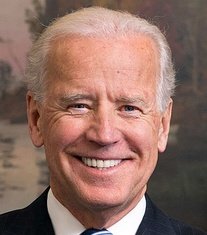Featured Quizzes
User Quizzes
Create Quiz
Data and Charts
Badges and Games
About JetPunk
JetPunk Shop
Dark Mode

States That Shifted to Biden in 2020
Guess the five states where Trump won the electoral vote in 2016, but Biden won in 2020.
No electoral votes shifted in the other direction, from Democrat to Republican
Also try States that Shifted to Trump in 2016
Rate:
Featured Quiz
Last updated: November 27, 2020
You have not attempted this quiz yet.
More quiz info >>
| First submitted | November 7, 2020 |
| Times taken | 12,286 |
| Average score | 80.0% |
| Rating | 4.00 |
0:45
Enter answer here
0
/ 5 guessed
Time Used
00:00
Best Time
00:00
The quiz is paused. You have remaining.
Scoring
You scored / = %
This beats or equals
% of test takers
also scored 100%
The average score is
Your high score is
Your fastest time is
Keep scrolling down for answers and more stats ...
|
New and Popular
Save Your Progress
Copyright H Brothers Inc, 2008–2024
Contact Us | Go To Top | View Mobile Site

Then again, the American electoral system has always seem unnecesarily complicated to me.
One possible exception might be Georgia, where Republicans control the state but lost the presidential election due to demographic shifts. If Republicans are afraid they will consistently lose Georgia in the future, they may pass a law to switch to proportional electoral vote assignment. That way they can retain some of those votes even after Democrats are a majority in the state, as long as they can hold one of the state houses.
Some states have pushed recently to move to awarding like Nebraska and Maine do (statewide winner takes 2 seats corresponding to senators, the rest go based on congressional district). That might seem more logical, but we tend to see that pushed only in states where the party pushing that approach consistently loses the presidential election statewide, yet has enough control on the state legislature that they've gerrymandered the districts. Wisconsin, for example - often goes "blue", yet heavily gerrymandered so that republicans would be virtually guaranteed at least half the electoral votes regardless of how well their candidate did.
To be fair to @esb219, I think what they were saying is that the United States was never intended to be a direct democracy. In fact, until the 17th Amendment, people didn't even directly vote for U.S. Senators, who were instead chosen by state legislatures. The founders wanted some level of indirection. They didn't want people to, for example, be able to vote themselves money from the state coffers.
It's very similar to how Democrats were all about the sacred rights of the filibuster until they were in the majority and then the filibuster was undemocratic, etc...
Not that the Republicans are any better. The only unifying principle of both parties is their naked efforts to gain power, employing any arguments they think will stick.
This is how Viktor Orbán made Hungary essentially a single-party state, while not doing anything illegal.
It's also why issues such as gerrymandering and court packing are so terrifying. It could eventually lead to a situation where one party controls everything, and there is almost no way for them to be legally voted out of power. My personal belief is this: "be wary of changing long established customs".
And, at the end of the day, America isn't Hungary. Hungary suddenly became a democracy 30 years ago, while America's been a mostly stable republic gradually transitioning toward more democracy for over 2 centuries. As flawed as American democracy is, it would be incredibly difficult to take it down.
(For the record, I'm trying to keep this non-partisan as possible, but if you think my comments need to be deleted, I understand).
CA- 39.5 million
TX- 29.0 million
FL- 21.5 million
NY- 19.5 million
PA- 12.8 million
IL- 12.7 million
OH-11.7 million
GA- 10.6 million
NC- 10.4 million
So as you can see, it would take the top 9 states and almost 3/4 of NC all voting 100% for the same candidate to control the election. I'm not suggesting doing away with the EC but those who advocate keeping it needs a better argument than the usual "CA & NY would outvote the rest of the states. And in these top 10 states, one is solid red, 3 solid blue and the others mixed.
It's true that candidates only seem to care about the swing states, but that's because those are the states where people are still undecided. It's not like Californians and Texans get their votes nullified, or that those votes *cannot* make a difference— it's that everyone knows how it's going to turn out so there's no need to campaign there. More states could absolutely change the election if they wanted to. A majority of Californians can vote Republican whenever they want. Any state that isn't a swing state has the ability to become one. And the reason the swing states have a chance to make a difference anyways is directly because the safe states voted the way they did.
I think that we should do strictly popular vote with ranked choice voting, but I acknowledge that there are negatives to that too and though the Electoral College is stiffly opposed by most Americans, 30 % in support is enough to derail any legislation.
Would you really propose that 1 million paper ballots be sent to be counted (by hand) in some nationally central location? Wouldn't it be easier to just send one person who can vote on behalf of the winner of your region's vote?
In our modern world, direct democracy is far more practical. When this stuff was invented, not so much. To all the places with wonderful voting systems that don't have any flaws or flawed outcomes: you're welcome.